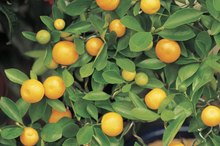What does fact checked mean?
At Healthfully, we strive to deliver objective content that is accurate and up-to-date. Our team periodically reviews articles in order to ensure content quality. The sources cited below consist of evidence from peer-reviewed journals, prominent medical organizations, academic associations, and government data.
The information contained on this site is for informational purposes only, and should not be used as a substitute for the advice of a professional health care provider. Please check with the appropriate physician regarding health questions and concerns. Although we strive to deliver accurate and up-to-date information, no guarantee to that effect is made.
Things Not to Eat With a Colostomy
Proper dietary management is one of the keys to evading potential complications of a colostomy. Leaking of the colostomy and odor are difficulties that may be avoided if you follow a few general dietary recommendations. Limiting foods that produce excess gas or cause gastrointestinal discomfort are commonly helpful. You may find it helpful to keep a list of foods you try and how those foods make you feel. This will provide you with a more customized list of tolerable foods since individuals react to foods differently.
If you are experiencing serious medical symptoms, seek emergency treatment immediately.
Sugary Foods
Sugary food is a major cause of diarrhea for people with a colostomy. Candy, pies, cookies, cakes, ice cream and other sweet treats are often poorly tolerated. Natural fruit juice has a high sugar content and is also not recommended. Prune juice and grape juice, in particular, are discouraged because of their frequency in causing diarrhea.
- Sugary food is a major cause of diarrhea for people with a colostomy.
- Prune juice and grape juice, in particular, are discouraged because of their frequency in causing diarrhea.
Gaseous Foods
Gastric Bypass, Diarrhea and Smelly Gas
Learn More
For many, foods that cause gas can vary from person to person. There are, however, foods that are more likely to increase your gas production. Drinking carbonated beverages, smoking, chewing gum and drinking with a straw often cause you to swallow air. Ingesting air results in gas that can expand the colostomy bag and cause discomfort 1. Vegetables from the cabbage family, such as broccoli, cauliflower, brussels sprouts and cabbage are known to be gas-producing. Other foods that tend to cause gas and odor include onions, garlic, asparagus and leeks.
- For many, foods that cause gas can vary from person to person.
- Vegetables from the cabbage family, such as broccoli, cauliflower, brussels sprouts and cabbage are known to be gas-producing.
High Fiber Foods
Fiber may be hard for your body to digest, especially if your colostomy is new. In general, consuming foods made with whole grains like brown rice, oats, barley and wheat should be limited. Fruit peels and raw vegetables are also high in fiber. Should you choose to eat fiber, slowly increasing the amount of fiber in your diet is recommended. This allows your body to acclimate to digesting fiber which can help avoid issues of intolerance such as discomfort, gas and diarrhea.
- Fiber may be hard for your body to digest, especially if your colostomy is new.
- This allows your body to acclimate to digesting fiber which can help avoid issues of intolerance such as discomfort, gas and diarrhea.
Alcohol
Foods to Avoid to Prevent Bloating
Learn More
An unpleasant odor from the colostomy is often the result of alcohol consumption. Because of its carbonation and fermentation, beer tends to be especially odiferous. Mixed drinks tend to contain additional sugar as well as fruit juices which can also cause diarrhea and unwanted odor from the colostomy.
- An unpleasant odor from the colostomy is often the result of alcohol consumption.
- Mixed drinks tend to contain additional sugar as well as fruit juices which can also cause diarrhea and unwanted odor from the colostomy.
Related Articles
References
- American Dietetic Association Nutrition Care Manual: Colostomy Nutrition Therapy
- MedlinePlus: Colorectal Cancer
- Loftus EV, Friedman HS, Delgado DJ, Sandborn WJ. Colectomy subtypes, follow-up surgical procedures, postsurgical complications, and medical charges among ulcerative colitis patients with private health insurance in the United States. Inflamm Bowel Dis. 2009;15(4):566-75. doi:10.1002/ibd.20810
- Memorial Sloan Kettering Cancer Center. Diet guidelines for people with a colostomy. Updated February 14, 2019.
Writer Bio
Located near Washington D.C., Kristen Lichtenberg has been writing health-related articles since 2007. Her publications include The Maryland Dietetic Association's "Chesapeake Lines" and "Nutrition in Clinical Practice." Lichtenberg holds a Bachelor of Science in dietetics from Michigan State University. She is now a practicing registered dietitian, certified nutrition support clinician and has a certificate of training in childhood and adolescent weight management.









